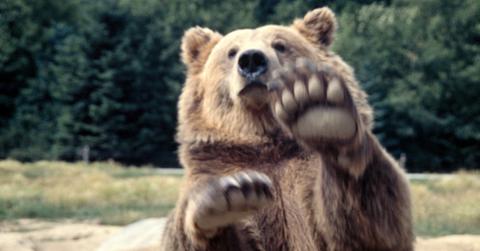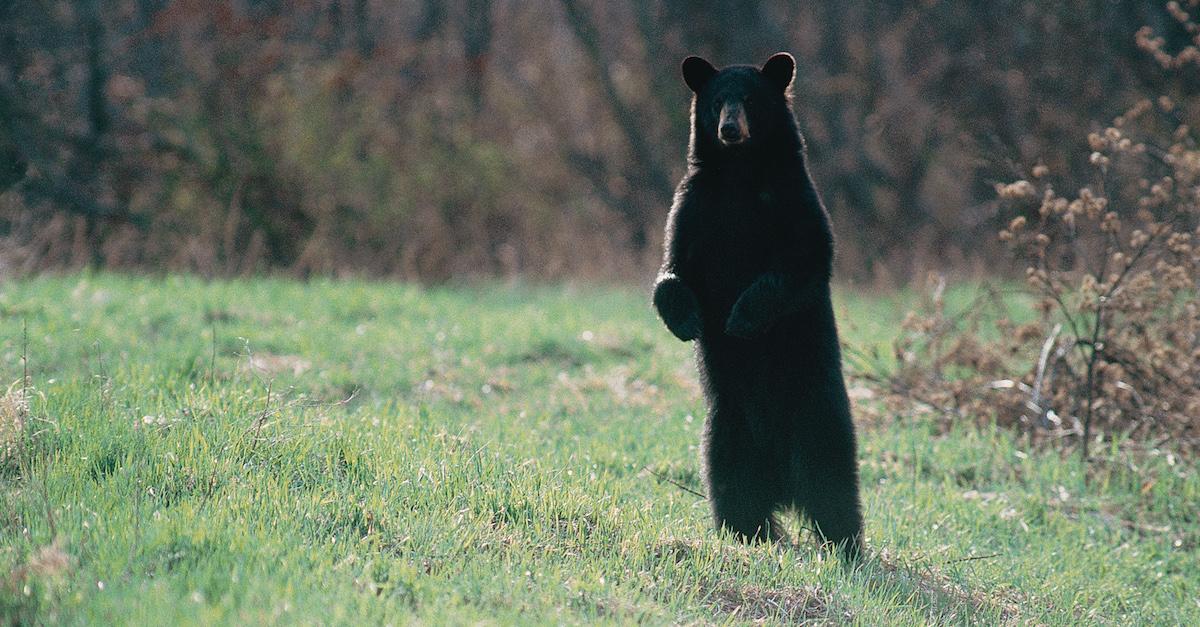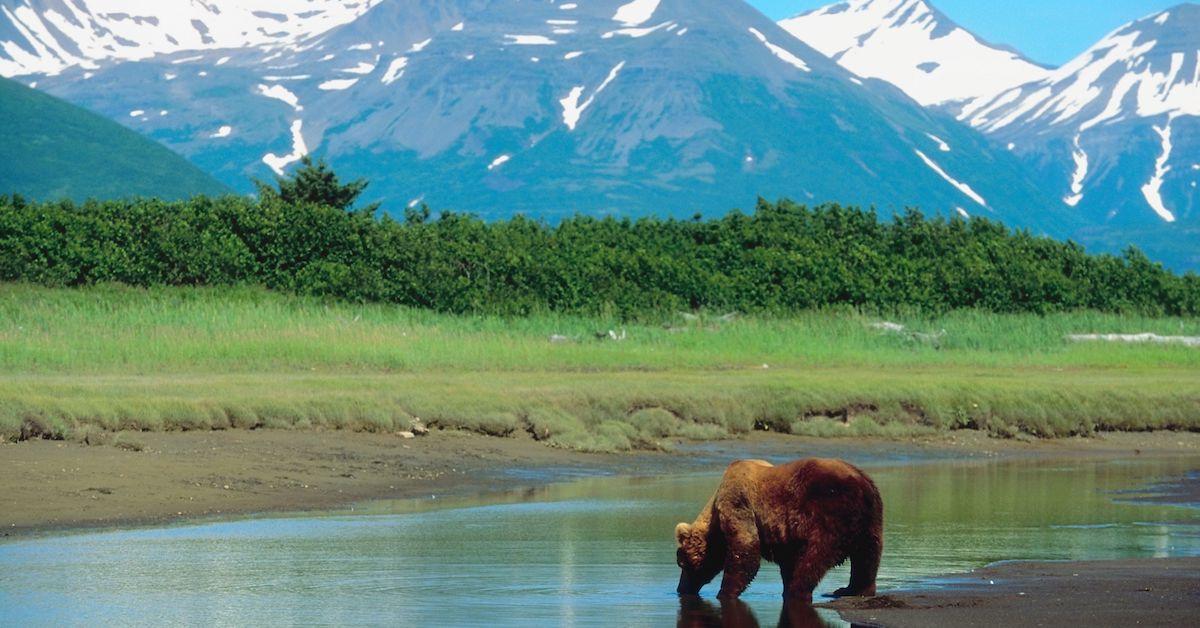Hiking 101: What You Should Do If You Encounter a Bear
Published April 21 2021, 12:55 p.m. ET

Although it certainly wouldn't be ideal to encounter a bear during a hike, it's unfortunately a risk hikers face in many parts of the world — in fact, an outdoor guide sadly died recently after being mauled by a grizzly bear at Yellowstone National Park on Thursday, April 15, 2021, according to EcoWatch. And while the possibility of seeing a bear shouldn't completely deter you from exploring the great outdoors, it's absolutely crucial for avid hikers to know what to do during an encounter.
With that in mind, we've compiled a list of precautions you should take to avoid bear encounters on hikes and while camping, as well as what you should do if you see them in the wild. Outdoor adventurers — take note.

Here's how to prevent a bear encounter on a hike before it happens:
There are many ways to prevent bear encounters while you're hiking. REI recommends to avoid trekking through the woods at dawn or at dusk, when bears are generally out and about, and sticking with packs of four or more, as bears stay away from large groups. They also recommend making noise while you hike, as shouting and singing alerts bears of your presence. Carrying bear spray also keeps bears away because it irritates their eyes — just don't spray it preemptively, because it can attract them.
If you're camping, it's important to be hyper aware of your food. Leaving food out at any time of day will attract bears, and storing it properly — with a bear canister hung from a tree — will make it harder for bears to find your stash. Also consider stowing away your toothpaste, deodorant, and sunscreen, as they have a keen sense of smell and will eat just about anything; prepare your food away from your tent; and always remember to leave no trace, for the sake of all the surrounding wildlife.

What to do if you see a bear on a hike:
Seeing a bear is obviously a treat for wildlife enthusiasts, but as previously mentioned, they can be aggressive and dangerous. According to the National Park Service, there are many steps you should take if you see a bear and the bear has seen you, to prevent the situation from escalating poorly. First, identify yourself by remaining still and slowly waving your arms, so they know you aren't prey. It's also recommended to speak calmly in a low voice, so they know you aren't threatening.
If there are small children in your group, pick them up off the ground immediately. Remember to not give the bear access to your food, and definitely don't drop your pack — it can provide protection, and prevent the bear from eating your food (and potentially wanting more). To move away from a stationary bear, walk slowly and sideways, keeping your eye on the bear, to seem non-threatening. Never climb any trees, as bears are great climbers, and leave the area completely when it's safe to do so.
Although bear attacks are extremely rare, they can clearly happen. If you're dealing with a grizzly, you should lay flat on your stomach and play dead. If you're dealing with a black bear, however, don't play dead — the NPS recommends doing everything you can to escape, and if that isn't possible, you should fight back with any nearby objects. Hopefully it won't come to this, and it most likely won't, but it's useful information if you're an avid hiker.
Clearly, it can happen to anyone.